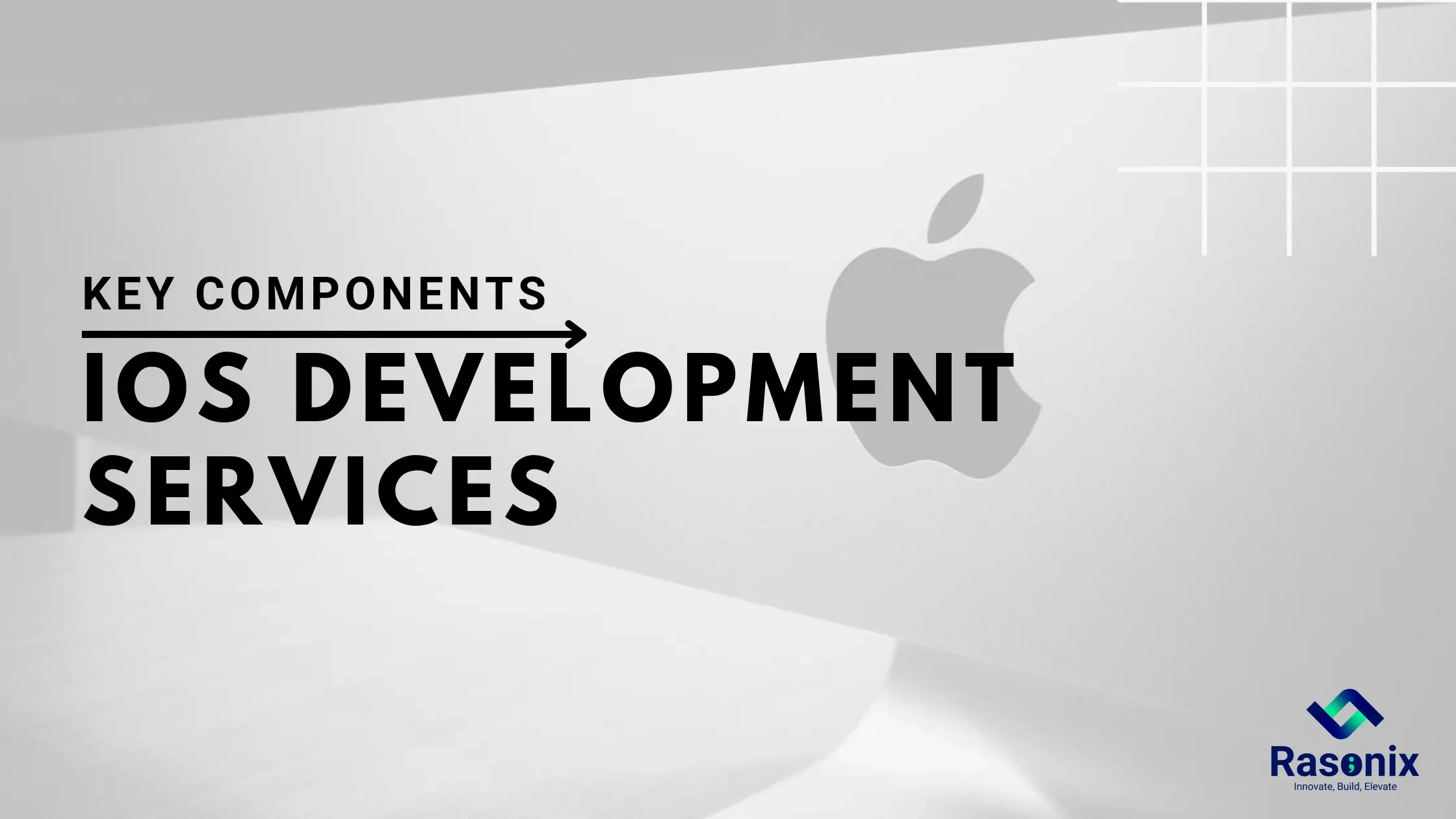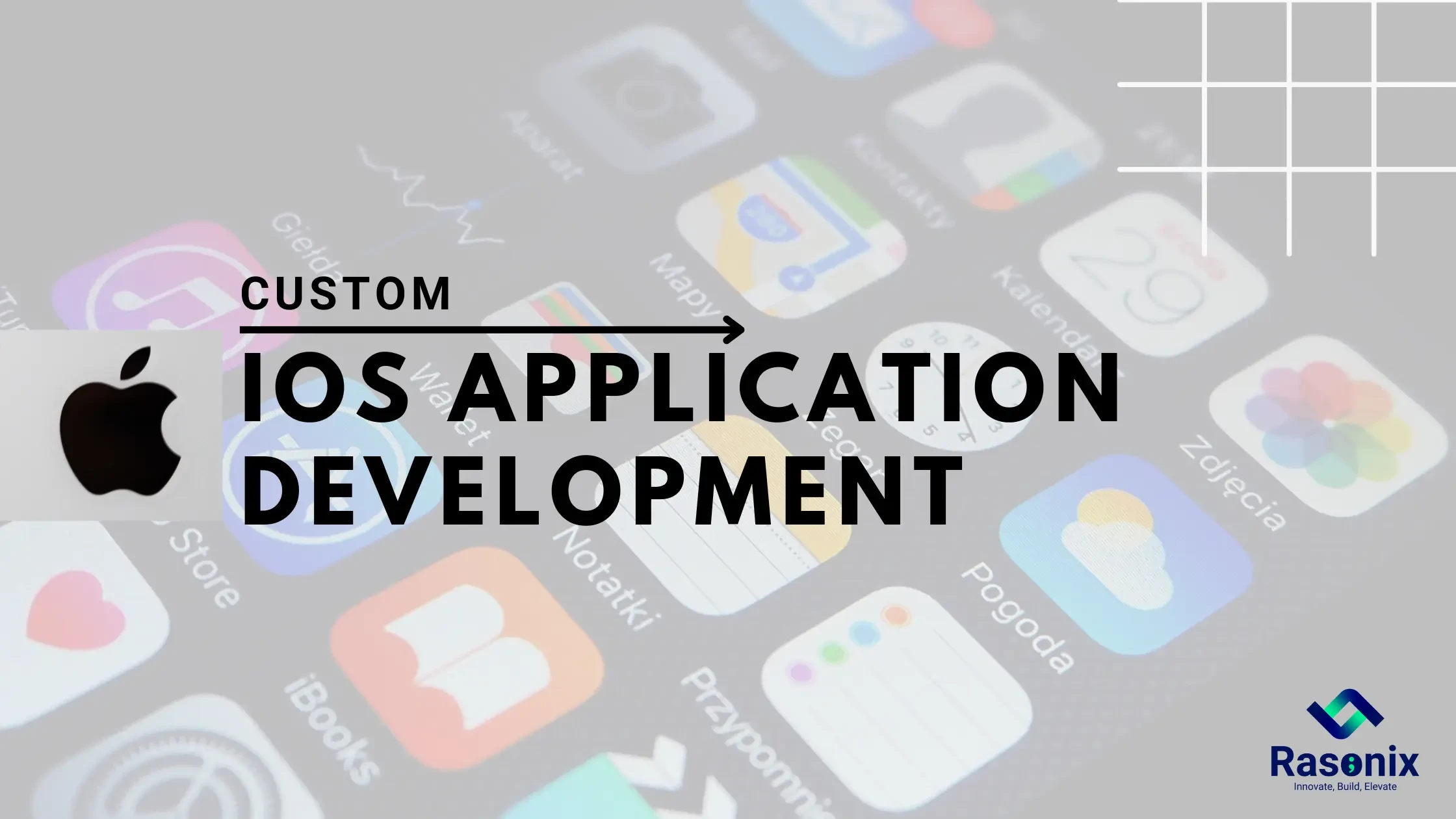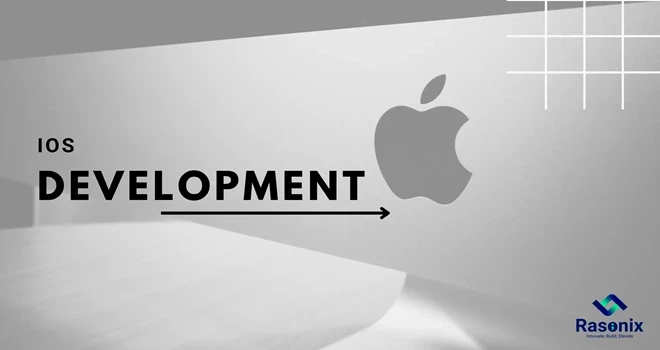iOS development services are essential for generating robust and user-friendly applications personalized for Apple devices like iPhones, iPads, and Apple Watches. These services encompass the entire app development lifecycle, from concept and design to development, testing, and post-launch support.
Key Components of iOS Development Services

1. High-Quality User Experience
- UI/UX Design: iOS development services prioritize user interface (UI) and user experience (UX) design. Apple’s Human Interface Guidelines serve as a benchmark, ensuring that apps are visually appealing and easy to navigate.
- Consistent Performance: iOS apps are known for their smooth performance, thanks to optimization specifically for Apple’s hardware and software ecosystem.
2. Security and Privacy
- Data Protection: iOS offers robust security features, such as encrypted data storage, secure data transmission, and app sandboxing, ensuring user data is protected.
- Regular Updates: iOS developers frequently release updates to address security vulnerabilities, keeping the app secure and up-to-date.
3. Efficient Development Process
- Swift Programming Language: Swift, the programming language used for iOS development, is known for its simplicity and safety features, allowing developers to write clean, maintainable code.
- Xcode Development Environment: Xcode provides a comprehensive development environment, including tools for coding, testing, and debugging, which streamlines the development process and reduces the likelihood of bugs.
4. Seamless Integration with the Apple Ecosystem
- Device Compatibility: iOS development services ensure that apps work seamlessly across various Apple devices, including iPhones, iPads, and Apple Watches, providing a unified experience for users.
- Integration with Apple Services: iOS apps can integrate with Apple’s native services like Siri, Apple Pay, and iCloud, enhancing functionality and user convenience.
5. App Store Compliance
- Strict Guidelines: iOS development services ensure that apps meet Apple’s App Store guidelines, covering everything from performance to privacy policies, increasing the chances of app approval and user trust.
- Quality Control: The App Store review process enforces a level of quality control, ensuring that only polished and secure apps are available to users.
6. Optimized Performance and Scalability
- Hardware Optimization: iOS developers optimize apps to take full advantage of Apple’s hardware capabilities, resulting in better performance and battery efficiency.
- Scalability: iOS development services focus on building scalable apps that can handle increasing user loads without compromising performance.
7. Ongoing Support and Maintenance
- Regular Updates: iOS development services include post-launch support, ensuring that the app remains compatible with new iOS versions and devices.
- Bug Fixes and Improvements: Continuous monitoring and updates ensure that any issues are promptly addressed, keeping the app running smoothly.
8. Consultation and Strategy
- Requirement Analysis: Understanding the client's needs, target audience, and business goals.
- Market Research: Analyzing competitors and market trends to define a unique value proposition.
- App Strategy: Creating a comprehensive roadmap for development, including feature prioritization and timelines.
9. Custom iOS App Development

- Native App Development: Building apps specifically for iOS using Swift or Objective-C, ensuring optimal performance and seamless integration with Apple’s ecosystem.
- Cross-Platform Development: Using frameworks like Flutter or React Native to develop apps that work on both iOS and Android platforms, though with some trade-offs in performance.
- Backend Development: Setting up the server-side infrastructure, databases, and APIs to support the app's functionalities.
10. Testing and Quality Assurance
- Automated Testing: Implementing automated testing scripts to ensure consistent performance across different devices and OS versions.
- Manual Testing: Conducting thorough manual testing to identify and fix bugs, usability issues, and performance bottlenecks.
- Beta Testing: Releasing the app to a small group of users to gather feedback and make final adjustments before the official launch.
11. Post-Launch Support and Maintenance
- Bug Fixes and Updates: Regular updates to address bugs, security vulnerabilities, and OS compatibility issues.
- Feature Enhancements: Adding new features based on user feedback and evolving business needs.
- Performance Monitoring: Continuously monitoring the app’s performance and making necessary adjustments to ensure a smooth user experience.
12. Analytics and User Engagement
- In-App Analytics: Integrating analytics tools to track user behavior, engagement, and retention.
- Push Notifications: Implementing push notifications to engage users and keep them informed about updates, offers, or other relevant information.
- A/B Testing: Conducting A/B tests on different features or UI elements to determine what works best for the target audience.
Conclusion
iOS development services are crucial for creating robust, user-friendly applications tailored for Apple devices, including iPhones, iPads, and Apple Watches. These services cover the entire app lifecycle, from initial concept and design to development, testing, and ongoing support. With a focus on delivering a high-quality user experience, maintaining stringent security standards, and ensuring seamless integration with the Apple ecosystem, iOS development services help businesses meet Apple’s high standards and deliver a superior user experience.
At Rasonix, we specialize in providing end-to-end iOS development services, from UI/UX design and native app development to post-launch support and maintenance. Whether you're launching a new iOS app or enhancing an existing one, our team is ready to deliver a solution that aligns with your business goals and exceeds user expectations.
Contact Rasonix to learn more about how our custom iOS app development services can bring your vision to life.




















 Subscribe Now
Subscribe Now